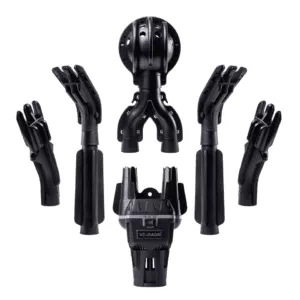
Traveling alone can be an exciting and rewarding experience, but it also comes with its own set of challenges. Hiking alone can be particularly daunting, as many potential dangers can arise. To ensure a safe and enjoyable solo hiking experience, it is important to consider the following tips before setting off on your journey. From packing the right supplies to staying aware of your surroundings, these tips will help keep you safe and make sure you have an unforgettable adventure.
Solo hiking can be an incredibly rewarding and empowering experience, but it is important to take the necessary precautions to stay safe. Whether you are an experienced hiker or just starting, these tips will help ensure that your solo hikes are as safe as they are enjoyable.
Plan your route carefully
Before setting out on a solo hike, make sure you have a clear idea of the route you will be taking. Check the weather forecast, and make sure you are prepared for any potential hazards, such as steep climbs or rocky terrain. It’s also a good idea to let someone know where you will be hiking and when you expect to return.
Bring appropriate gear
It’s important to bring the appropriate gear when solo hiking. In addition to wearing comfortable, sturdy shoes, a 12-volt glove dryer, bring plenty of water, food, and a first aid kit. Depending on the length and difficulty of your hike, you may also need a map, compass, and/or GPS device. Bring extra layers of clothing, including a rain jacket, in case of the weather changes unexpectedly.
Practice good hygiene
When solo hiking, it is important to practice good hygiene to avoid getting sick or injured. This means bringing hand sanitizer or soap and using it before eating or touching your face. It’s also important to properly dispose of any waste, including food scraps and toilet paper, and to avoid contaminating water sources.
Stay on the trail
One of the easiest ways to get lost or injured while hiking is by straying off the trail. While it may be tempting to explore off the beaten path, it’s important to stay on the trail to avoid getting lost, injured, or disoriented. Additionally, sticking to the trail can help minimize your impact on the surrounding environment.
Bring a reliable communication device
When solo hiking, it is important to bring a reliable communication device in case of an emergency. This might be a satellite phone or a cell phone. Make sure your device is fully charged, and that you have a backup power source if needed.
Be aware of your surroundings
When solo hiking, it is important to be aware of your surroundings at all times. Keep an eye out for potential hazards, such as loose rocks or slippery terrain, and make sure to stay alert for any wildlife that may be in the area. If you encounter wildlife, give them plenty of space and avoid approaching them.
Pace yourself
Solo hiking can be a physically and mentally demanding experience, so it’s important to pace yourself to avoid getting exhausted or injured. Take breaks when needed, and make sure to stay hydrated and nourished throughout your hike.
Trust your instincts
If something feels off while solo hiking, it’s important to trust your instincts. If you feel lost or disoriented, stop and retrace your steps. If you feel uncomfortable or unsafe, find a safe place to wait until you feel comfortable continuing. When it comes to your safety, it’s always preferable to err on the side of caution.
Be prepared for emergencies
Even with the best planning and precautions, emergencies can still happen while solo hiking. Make sure you have a plan in place for what to do in case of an emergency, and bring any necessary equipment, such as a first aid kit, that you may need to treat injuries.
Practice Leave No Trace principles
When solo hiking, it is important to practice Leave No Trace principles to minimize your impact on the environment. This includes properly disposing of waste, avoiding unnecessary noise, and staying on established trails. Remember, you are a guest in the wilderness, and it is your responsibility to help preserve it for future generations.
Final words
Solo hiking trips are an amazing way to explore the outdoors, connect with nature and find yourself. Not only do they offer a great opportunity to discover new places, but they also provide a sense of freedom and independence. For beginners, with the right preparation and traveling tips, it can be an incredibly rewarding experience.
From packing the right gear like a glove dryer to finding safe routes and trails, there are many things that you should consider when planning your trip. In conclusion, solo hiking can be an incredibly rewarding and fulfilling experience, but it is important to take the necessary precautions before going for a hiking adventure.







